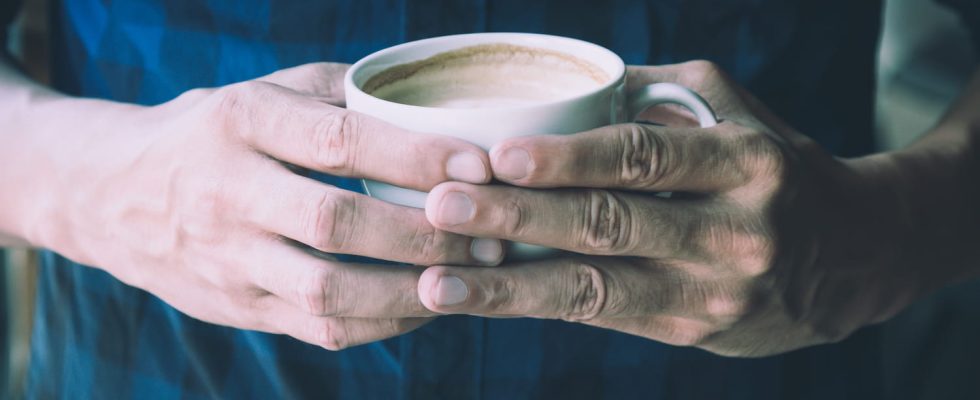Prostate problems generally appear around the age of 50 in men. Sometimes younger if you don’t take care of it. To limit the risks, it is advisable to avoid certain inflammatory or diuretic drinks…
In men, the prostate is a gland that has an essential role in reproductive, sexual and urinary function. But as age advances, the prostate enlarges and there is an increased risk of diseases (prostate enlargement, prostatitis, prostate cancer, etc.), which can lead to bothersome symptoms (frequent urge to urinate, difficult urination, etc.), hence the interest to take care of it and avoid certain inflammatory or diuretic drinks…
1. Alcohol: promotes inflammation of the prostate
“Alcohol does not directly affect the prostate, but since alcohol is pro-inflammatory from a general point of view, drinking it regularly could still have a harmful effect on the functioning of the prostate“, immediately warns Raphaël Gruman, dietitian-nutritionist. In 2016, a meta-analysis conducted by Australian and Canadian researchers (based on 340 studies) published in the journal BMC Cancer revealed that even moderate alcohol consumption was associated with increased risk of developing prostate cancer. Men who drank less than two glasses per day had an excess risk of 8% compared to those who did not drink it at all. Heavy consumers (up to six drinks per day) had an excess risk of 14% and very heavy consumers (more than six drinks), an excess risk of 18%.
2. Coffee: to be limited in case of prostate hyperplasia
“More than 4 cups per daycoffee becomes harmful, particularly because of its inflammatory properties”, reports our expert. Furthermore, caffeine has a diuretic effect and increases the need to urinate. Thus, men with benign prostatic hyperplasia (or prostate adenoma), who have difficulty completely emptying their bladder, must limit their coffee consumption, particularly at the end of the day. “On the other hand, for men who do not have any particular prostate problem and if it is consumed in reasonable quantities, i.e. 1 to 4 small cups per day, coffee would be quite good for the prostate“, indicates our interlocutor. A Japanese study, published in review The Prostate and the results of which were presented at the congress of the European Association of Urology in 2019 even showed that two of its components (the kawhéol and the cafestol) would have protective effects against prostate cancerand would prevent metastases by preventing the growth of drug-resistant prostate cancer cells.
3. Sodas: a cancer risk?
The problem is not the gas they contain, but the amount of sugars present there. In other words, sparkling water does not have a negative impact on the prostate, unlike sugary carbonated drinks such as Coke, Fanta, Sprite… which may increase the risk of prostate cancer. In 2012, a study conducted by researchers at Lund University in Sweden whose results were published in theAmerican Journal of Clinical Nutrition, found that men who consumed a lot of soda or other drinks with added sugar had, on average, 40% risk of developing serious forms of prostate cancer compared to men who did not drink it.
“Sugar participates in the development of most cancer cells by providing them with energy”
“Sugar would participate in the development of most cancer cells by providing them with energy. When we ingest refined sugar, which has a high glycemic index, the body responds by producing insulin to assimilate it. However, this production of insulin is accompanied bysecretion of IGF-1a molecule that stimulates the development of cells, even cancer cells“, we can read in the study. Furthermore, “zero” sodas, containing sweeteners such as aspartame, are not better. Sweeteners give a sweet signal to the body which responds in the same way than with sugar, by releasing insulin. Of course, it’s all a question of quantity: theAmerican Cancer Society recommends for example not to drink more than 2 cans of soda per week (light or normal) to limit your risk of cancer.
4. Energy drinks such as Red Bull: an indirect effect on the prostate
Since they contain caffeine, sugar or sweeteners, “energy drinks (or energy drinks such as Red Bull©, Monster©) have an indirect negative impact on the prostate“, underlines our expert. On the other hand, in 2009, on the basis of toxicological data transmitted, theEuropean Food Safety Authority (Efsa), concluded that “exposure to taurine and D-glucuronolactone, at levels currently used in energy drinks“, did not arouse no health concerns.
Thanks to Raphaël Gruman, dietician-nutritionist.
